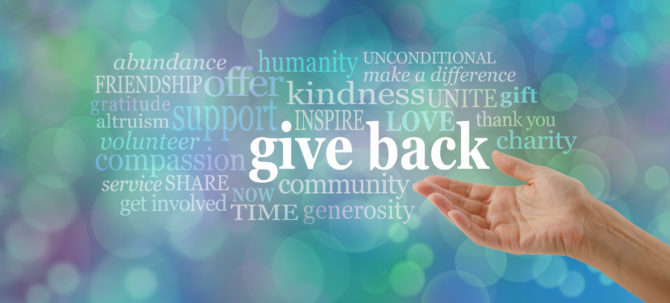
If you’ve struggled with an eating disorder, no one knows better than you the challenges it brings. Recovering from anorexia, bulimia, binge eating disorder and other eating disorders is a unique experience and a hard won fight.
Finding healing after an eating disorder is a feat to be proud of. The journey brings a wealth of knowledge, real-life tips and applicable wisdom that you can share with others. It’s a common experience to desire to share your freedom with others and help those who are currently dealing with an eating disorder.
If you’re looking to use your own struggles to motivate others, there are plenty of careers and opportunities in eating disorder recovery support. Here’s what you’ll want to consider before plunging into this field.
Careers in eating disorder recovery support
Compassionate, dedicated and empowering individuals are always needed in the eating disorder recovery field. Wherever your strengths lie, if you’re interested in how to help someone with an eating disorder, there is a role for you. Here are some careers and volunteer opportunities you might consider.
Mental health jobs
Social worker
A social worker generally acts as the case manager in eating disorder recovery support. This role is essential for completing an intake assessment, creating a treatment plan, discharge planning (like finding housing and employment or connecting a patient to continuing care after treatment) and discussing other logistical concerns.
Counselor
A counselor can help a patient in eating disorder recovery to examine their own goals and find solutions to problems. A counselor generally has a bachelor’s degree in a mental health field and offers a set number of sessions that aim at future-oriented change. A counselor might help a patient in eating disorder treatment establish concrete plans to address and cope with eating disorder triggers.
Psychologist
A psychologist is similar to a counselor in their role in managing emotional distress, but a psychologist (often called a therapist) tends to have more training, offer services on a more long term basis and will help a patient process the past as well as the future. A psychologist would help someone explore the origin of their eating disorder and identify dysfunctional patterns in behavior to create meaningful change.
Medical jobs
Psychiatrist
A psychiatrist is a medical doctor who specializes in the diagnosis and treatment of mental health disorders. A psychiatrist, unlike a psychologist, is able to write prescriptions for medication, which are often used in the treatment of eating disorders. They can help with weight management and co-occurring psychological conditions.
Registered dietician
A registered dietician has education, training and licensing to assist with proper eating. A large part of eating disorder recovery support is creating a balanced diet that has the appropriate amount of nutrients in an approachable way. Building a wholesome relationship with food is essential to healing and a registered dietician can help with meal planning, ensuring appropriate caloric intake and undoing the harm of nutrient deficits.
Nurse
All eating disorder recovery inpatient clinics are staffed by nurses who monitor symptoms and provide care around the clock. These nurses help patients function at their best, prevent complications and injuries, provide information to patients and families, administer medication and are often the front line of communication with patients.
Volunteer jobs
Writer
Sharing your experience can be a powerful testament to someone who is in the midst of an eating disorder. Your recovery story and the success of your treatment may offer a pivotal moment to someone who is currently struggling. Consider outlets where you can share your witness, like writing for an online forum or speaking at a local treatment center.
Donor
While a lot of the work that goes into helping with eating disorder recovery is hands-on, there’s also a huge need for financial contributions. Donors help fund eating disorder research, scholarships for eating disorder survivors, education for at-risk populations and caregivers, workshops for those in recovery and prevention programming.
Recovery mentor
Those who are receiving eating disorder recovery support through professional treatment may need an extra support person outside of the formal setting of rehab. Recovery mentors are those who have been in recovery for a substantial amount of time and can offer tried and true advice to those freshly in recovery.
Find local opportunities
Your local eating disorder treatment center may have ways that you can offer support. Call to find out how you can give back, or check out national organizations, like the National Eating Disorder Association’s volunteer and intern page or the National Association of Anorexia Nervosa and Associated Disorders’ page on getting involved.
How to help someone with an eating disorder
There are plenty of ways to offer eating disorder recovery support regardless of your qualifications. Consider bringing hope, healing and happiness to others by applying for a job at Seeds of Hope.
Seeds of Hope is an eating disorder clinic in Pennsylvania that offers adult and teen programs to those struggling with a negative relationship with food. Individualized care helps patients to manage triggers, build nutritious habits and create a meaningful life. Call today to learn more.


